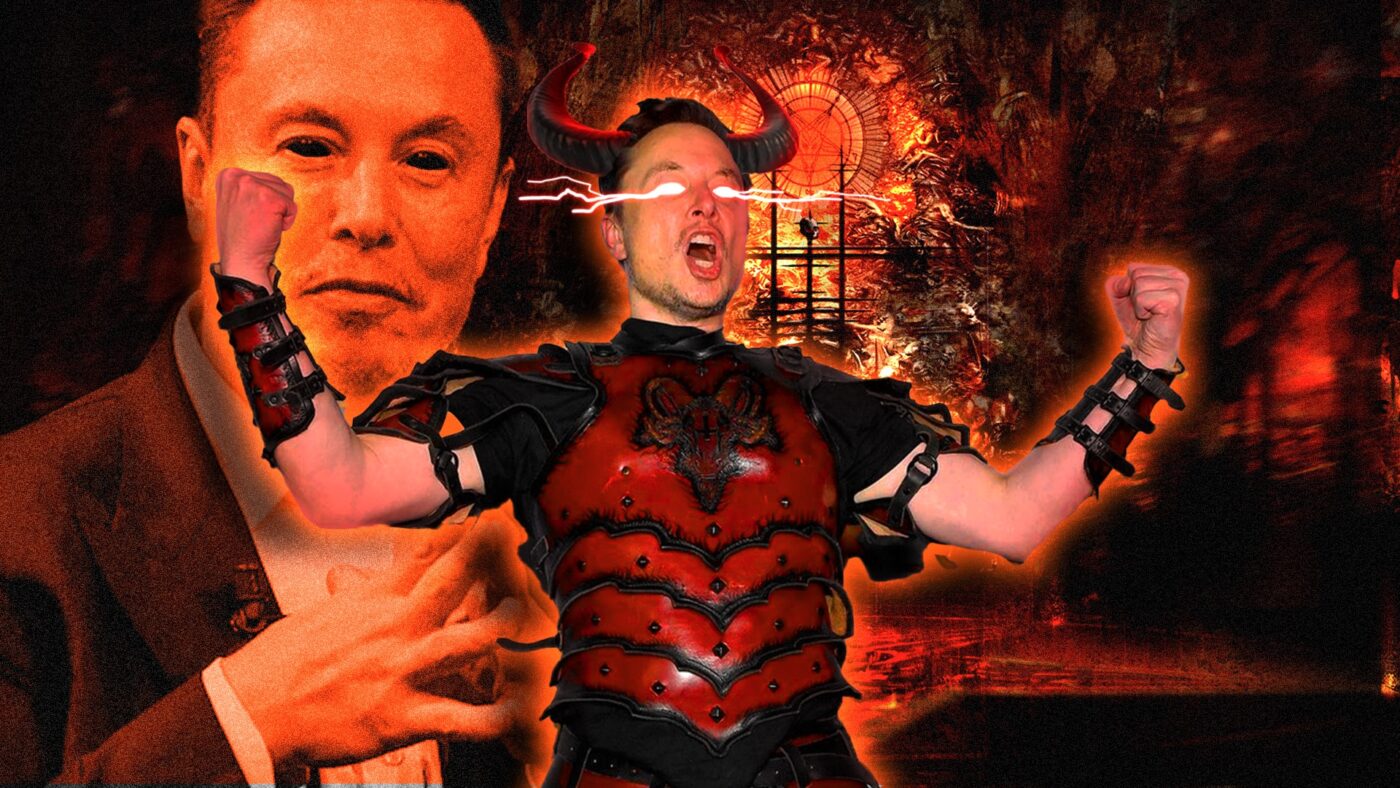Speaking to a budding Elon Musk biographer, Musk’s ex-girlfriend and baby momma has revealed that the Tesla head honcho has a pretty scary dark side that emerges under pressure.
It seems that Elon Musk just can’t keep out of headlines at the moment. After news emerged of his upcoming cage fight with rival billionaire tech-titan Mark Zuckerberg, the Tesla and Twitter boss has spoken candidly about his ongoing ketamine use (both for mental health and “recreational” purposes) as well as brawling with one of the internet’s biggest podcasters in an effort to make his might known.
Walter Isaacson — biographer of Steve Jobs, Einstein and now Elon Musk — has shed light on a lesser-known though arguably unsurprising aspect of Musk’s personality. Isaacson, who has spent over two years researching every minor detail of Musk’s life, reveals that the entrepreneur has the capacity to enter into a headspace that he, with the help of Musk’s former partner, Canadian musician Grimes, has coined “demon mode”.
As reported in Futurism, this “mode” is most likely to emerge when Musk enters a period of high productivity, with the intense focus that has arguably made him the success story he is today coming at a sizeable social cost. Musk displays a distinct lack of empathy during these periods, with his very own ex-girlfriend and mother of his inscrutably-named child claiming that Musk can become wholly “unpleasant” to be around when in this state, but acknowledged that it was an unfortunate side-effect of his undeniable ability to “get things done.”
WATCH: Musk’s multi-millionaire rival — Mark Zuckerberg — is prepping for their big fight.
Building on Grimes’ initial descriptions (which themselves paint a pretty vivid picture) Isaacson fleshed out the specific symptoms of this particular headspace: Musk apparently takes on a “maniacal sense of urgency” which easily intimidates those working with or around him. Though this “dark streak” isn’t entirely uncommon among highly successful individuals — whether or not that prevalence makes it excusable is a question for another day — Isaacson recalled instances where Musk would become so deeply focused and critical that he took on an aggressive, threatening edge towards his staff:
“[Musk would] rip that person apart.”
Walter Isaacson
Keen to keep things in perspective, Isaacson goes on to estimate that Musk’s criticism towards employees was overall more constructive than destructive around 80% of the time, but acknowledged that the remaining 20% was undeniably problematic. To make an obvious but important point: that means that Musk may be sunshine and rainbows for four days of the working week, but he’s liable to fly off the handle for the equivalent of a whole workday every week…
Perhaps the darkest example we have of this effect comes from a distressing anecdote shared by Isaacson, whereby he uncovered that an employee Musk had berated had been dealing with extremely challenging personal circumstances at the time — the recent loss of a child, no less — a fact to which Musk was either utterly oblivious or crassly chose to ignore; either possibility leaves big question marks over Musk’s managerial temperament.

How does Musk explain this behaviour away? Through a holier-than-thou world view of course, whereby he views empathy and personal feelings as an egotistical indulgence, preferring instead to prioritize the larger goal at hand — does totally destroying Twitter count, I wonder? — takes precedence over care and consideration for individuals. While a cynic might say this all sounds like macho, toxic, and dangerous grind culture hokum (this writer included) Elon fanatics, of which there always seem to be an inexplicably large and devoted amount, are likely to applaud his stoic focus.
In a tale as old as time, it seems that the brightest stars can cast the darkest shadows. Behind the so-called visionary genius lies an ugly side to his personality that risks leaving those around him in the path of his tempestuous storm. Though some will say that the cost of reaching for the stars is always steep, the issue here is who has to bear that cost; whichever way you cut it, my vote is to keep grieving mothers off the list of candidates.
